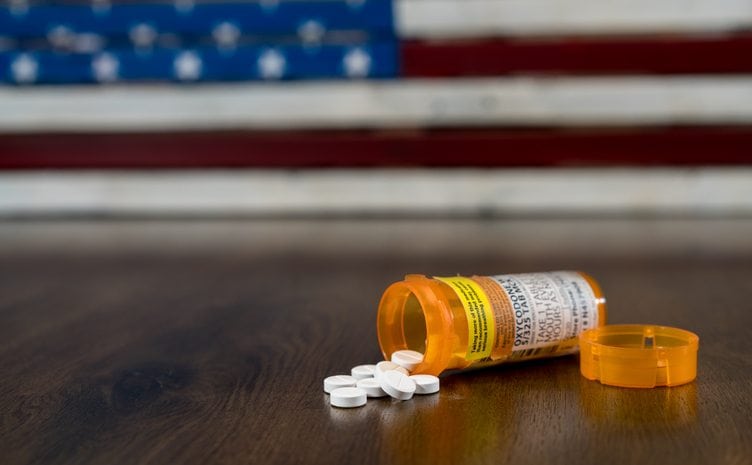<< Back
Why COVID-19 Could Make the Opioid Epidemic Even Worse

April 14, 2020
The COVID-19 pandemic brings all the elements needed to worsen the state’s opioid epidemic – increased isolation, inability to keep medical appointments and an overarching pall of fear and depression.
“I’m concerned that this pandemic will worsen the opioid epidemic in a number of ways,” said Dr. J. Craig Allen, medical director of Rushford, part of the Hartford HealthCare Behavioral Health Network. “First, in the best of times, stress and anxiety amplify risk for relapse. The pandemic’s impact on schedules, worries about health, family, friends and finances, and access to social media put those with risky use or in recovery in a challenging place.”
While social distancing is essential to fight the COVID-19 spread, he said it hinders the ability of anyone in recovery to maintain connections that are key to sobriety, including in-person Alcoholics and Narcotics Anonymous meetings.
He also said people who normally tap non-opioid help for pain management – physical therapy (PT), acupuncture, nerve blocks or cognitive behavioral strategies – might turn to “more liberal use of opioid pain medications” because those options are unavailable.
“Lastly, a decrease in access to legitimate supplies of opioid pain medications – either because they cannot access their medical provider or a shortage of drugs in high demand for COVID-19 care – can lead people to use alternatives from non-medical sources,” Dr. Allen said.
The first step in addressing chronic pain, he suggested, is to talk to your care provider or pain management specialist. Then, try such alternatives as:
- Exercising.
- Stretching.
- Mindfulness.
- Meditation.
Some physical therapy practices, including Hartford HealthCare’s, are still providing care, in-person or virtually. Check with your provider for more information.
Opioid misuse, Dr. Allen said, can easily escalate into a life-threatening problem. Any of these symptoms could indicate a problem with opioids or any addictive substance:
- Taking more for longer or more often than intended.
- Not being able to cut down.
- Spending a lot of time getting, using or recovering.
- Having cravings to use.
- Not doing what is expected for work, school or family.
- Using even when it causes relationship problems.
- Giving up important social, work or recreational activities.
- Using even when it puts you in danger.
- Continuing to use when you know it makes your physical or psychological problems worse.
- Using more and more to get the same effect.
- Having unpleasant withdrawal symptoms when you cut down or stop using.
Rushford, Dr. Allen said, remains open for inpatient behavioral health and substance use disorder treatment through the pandemic. The Behavioral Health Network is also using telehealth to virtually connect patients and staff for therapeutic services and medications.
“It isn’t always necessary to come into the office to receive care.,” Dr. Allen said. “During this pandemic, we can provide many treatments virtually and, if more intensive treatment is needed, our withdrawal management (detox) and residential programs remain open and focused on keeping patients and staff safe.”
For more information about Rushford, click here.
Not feeling well? Call your healthcare provider for guidance and try to avoid going directly to an emergency department or urgent care center, as this could increase the chances of the disease spreading.
Click here to schedule a virtual visit with a Hartford HealthCare-GoHealth Urgent care doctor.
Stay with Hartford HealthCare for everything you need to know about the coronavirus threat. Click here for information updated daily.
Questions? Call our 24-hour hotline (860.972.8100 or, toll-free, 833.621.0600).
Get text alerts by texting 31996 with COVID19 in the message field.